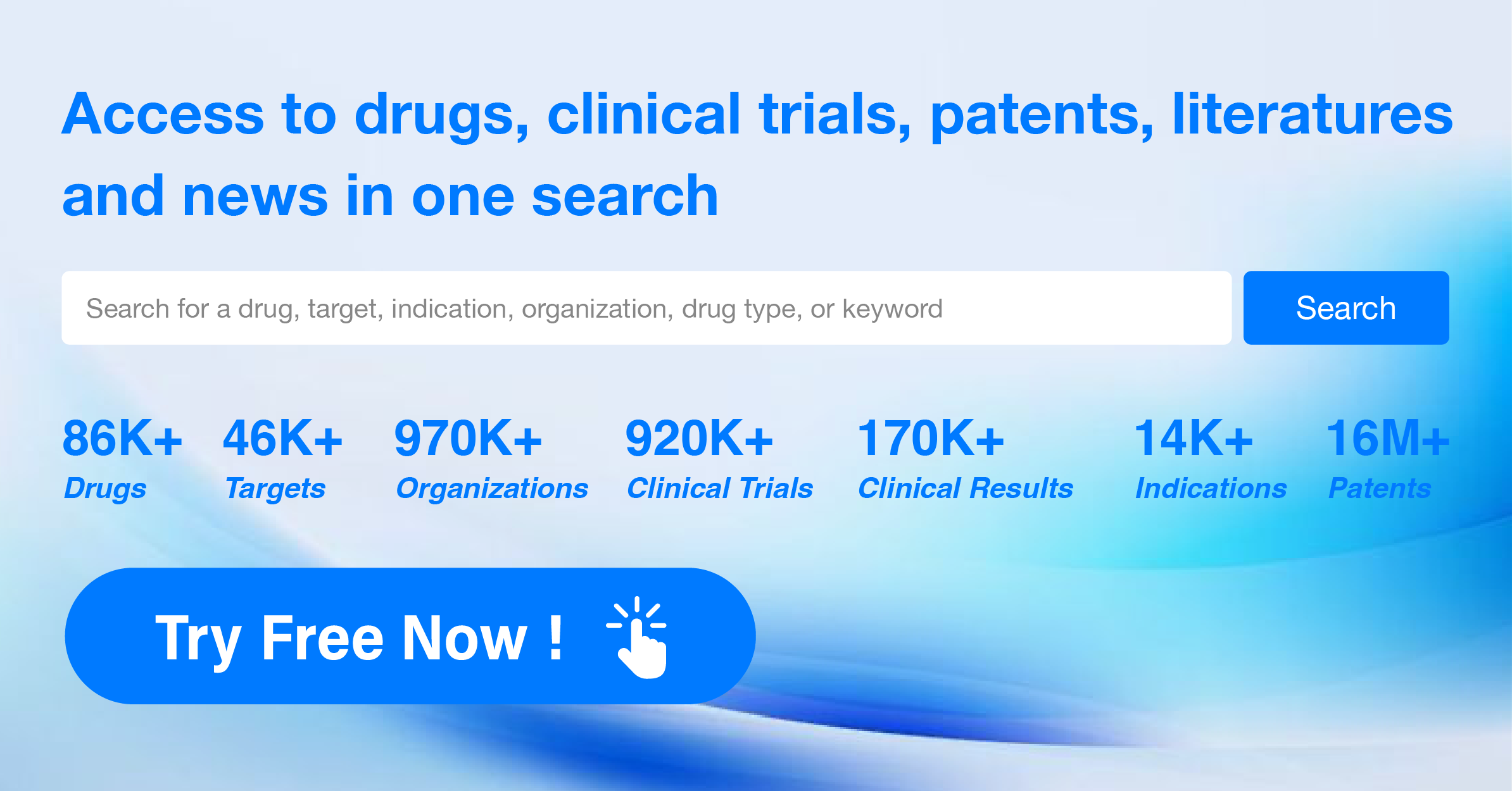Pharma Frontiers: Daily Digest of Global Pharmaceutical News - May 21
1.Zai Lab Introduces Intravenous Anti-Infective New Drug SUL-DUR Approved for Market Launch!
On May 20th, the National Medical Products Administration (NMPA) of China announced on its official website the approval of the market application for "Durlobactam/Sulbactam sodium," intended for the treatment of patients aged 18 and above with hospital-acquired bacterial pneumonia (HABP) and ventilator-associated bacterial pneumonia (VABP) caused by susceptible isolates of Acinetobacter baumannii-calcoaceticus complex (ABC). According to public information, this is the anti-infective new drug SUL-DUR introduced by Zai Lab. The Acinetobacter baumannii-calcoaceticus complex (ABC) is a Gram-negative pathogen primarily infecting critically ill patients, causing severe pneumonia and bloodstream infections. It can also infect other body parts, such as the urinary tract and skin. ABC is capable of developing multidrug resistance and is considered a global public health threat. In China, Acinetobacter baumannii is also a common pathogen responsible for hospital-acquired pneumonia and ventilator-associated pneumonia.
SUL-DUR, developed by Entasis, is an investigational intravenous combination drug consisting of Sulbactam (an intravenous β-lactam antibiotic) and durlobactam (a novel broad-spectrum intravenous β-lactamase inhibitor, or BLI). It is intended for the treatment of infections caused by ABC, including multidrug-resistant and carbapenem-resistant strains. In May 2023, SUL-DUR was approved by the U.S. FDA for the treatment of hospital-acquired bacterial pneumonia and ventilator-associated bacterial pneumonia caused by susceptible strains of ABC in patients aged 18 and above. According to an earlier press release by Zai Lab, the company has the exclusive license for the development and commercialization of SUL-DUR in the Greater China region (Mainland China, Hong Kong, Macau, Taiwan), South Korea, Vietnam, Thailand, Cambodia, Laos, Malaysia, Indonesia, the Philippines, Singapore, Australia, New Zealand, and Japan.
2.NMPA Approves Beta Pharma's Rezivertinib Mesylate Capsules for Market
On May 20, the website of the National Medical Products Administration (NMPA) of China announced the approval of Shanghai Beta Pharma Co., Ltd.'s Type 1 innovative drug, Rezivertinib Mesylate Capsules, for market release. This drug is indicated for adult patients with locally advanced or metastatic non-small cell lung cancer (NSCLC) who have experienced disease progression during or after treatment with epidermal growth factor receptor (EGFR) tyrosine kinase inhibitors (TKIs) and have been confirmed through testing to have the EGFR T790M mutation.
Rezivertinib (BPI-7711) is an independently developed, irreversible, and highly selective third-generation small molecule EGFR-TKI by Beta Pharma. It exhibits significant inhibitory activity against EGFR-sensitive single mutations as well as EGFR T790M-positive resistant mutations. Rezivertinib was first approved for clinical trials in February 2017. In March 2021, CSPC Pharmaceutical Group reached an agreement with Beta Pharma to obtain the commercialization rights of Rezivertinib in China, including Hong Kong and Macau but excluding Taiwan. In September 2022, Beta Pharma presented the results of a Phase II clinical trial for Rezivertinib at the ESMO conference.
The primary endpoint of the trial was the objective response rate (ORR) as evaluated by blinded independent central review (BICR). Secondary endpoints included disease control rate (DCR), duration of response (DOR), progression-free survival (PFS), and overall survival (OS). The results showed that the BICR-assessed ORR was 83.7% (95% CI: 69.3-93.2), the DCR was 97.7% (95% CI: 87.7-99.9), the median DOR was 19.3 months (95% CI: 15.8-25.0), the median PFS was 20.7 months (95% CI: 13.8-24.8), and the median OS was 25.3 months (95% CI: 25.0-26.2).
Rezivertinib Mesylate is an EGFR kinase inhibitor with irreversible inhibitory action on EGFR mutants such as EGFR T790M and L858R. The approval of this medication provides a new treatment option for adult patients with non-small cell lung cancer.
3.Haisco Pharmaceutical's New Analgesic Drug Crisugabalin Capsules Approved for Market
On May 20th, the National Medical Products Administration (NMPA) of China announced on its official website the approval of Haisco Pharmaceutical's Category 1 innovative drug, Crisugabalin Benzenesulfonate Capsules, for the treatment of diabetic peripheral neuropathic pain (DPNP) in adults. Crisugabalin Benzenesulfonate is a structural derivative of the inhibitory neurotransmitter gamma-aminobutyric acid (GABA) and serves as an orally administered, third-generation central nervous system calcium channel modulator, which does not require titration.
DPNP, commonly referred to as "diabetes pain," is a severe complication of diabetes, characterized by persistent or intermittent burning, stabbing, tearing, throbbing, electric shock-like, cutting, and pressure-like pain. Once it occurs, it not only severely affects the quality of life of patients but can also lead to functional impairment and even disability. Currently available treatments and therapies do not fully meet the clinical and patient needs; thus, there is an urgent requirement for new therapeutic drugs or plans.
Crisugabalin, an oral GABA analog, can bind to the voltage-sensitive calcium channel α2δ subunit receptors in the central nervous system, reducing the influx of calcium ions through voltage-dependent calcium channels in the central nervous system. This reduction leads to decreased release of excitatory neurotransmitters such as glutamate, norepinephrine (NE), and substance P, giving it analgesic, antiepileptic, and anxiolytic properties. Compared to other drugs with a similar mechanism, Crisugabalin has a stronger binding affinity for the α2δ subunit, offering the potential for better analgesic efficacy.
According to available data, central nervous system calcium channel modulators are recommended as first-line treatments for DPNP in clinical guidelines. However, first and second-generation drugs pose multiple challenges, including cumbersome titration processes and suboptimal safety profiles. Haisco Pharmaceutical's Crisugabalin aims to address these issues with its unique drug structure, potentially providing improved efficacy, safety, and ease of use.
4.Bristol Myers Squibb TYK2 Inhibitor Deucravacitinib Long-term Clinical Trial Results Released
Recently, Bristol Myers Squibb announced the latest 4-year results from the POETYK PSO Long-term Extension (LTE) trial of the selective TYK2 inhibitor Sotyktu (deucravacitinib) for treating moderate to severe plaque psoriasis in adult patients. At Week 208, the data showed response rates for PASI 75 (Psoriasis Area and Severity Index improvement of at least 75%) and PASI 90 were 71.7% and 47.5%, respectively. The response rate for sPGA 0/1 (Static Physician's Global Assessment of clear or almost clear skin) was 57.2%. These findings were presented at the recent European Academy of Dermatology and Venereology (EADV) Spring Symposium.
The efficacy analysis evaluated 513 patients who continued Sotyktu treatment from Day 1 of the pivotal POETYK PSO-1 and POETYK PSO-2 studies and transitioned into the POETYK PSO-LTE trial. Clinical efficacy was maintained through Year 4 for those who continued treatment from baseline. In Year 4, the sustained response rate for PASI 75 was 71.7% (Year 1: 72.0%; Year 3: 73.8%), PASI 90 sustained response rate was 47.5% (Year 1: 45.6%; Year 3: 49.0%), and the sPGA 0/1 sustained response rate was 57.2% (Year 1: 57.7%; Year 3: 55.2%).
Sotyktu is an oral, selective TYK2 allosteric inhibitor with a unique mechanism of action. Bristol Myers Squibb scientists designed Sotyktu to selectively target TYK2, thereby inhibiting the signaling of IL-23, IL-12, and Type I interferons (IFNs)—key cytokines involved in the pathogenesis of multiple immune-mediated diseases. Sotyktu achieves allosteric inhibition of TYK2 and its downstream functions by highly selective binding to the regulatory domain of TYK2. At therapeutic doses, Sotyktu does not inhibit JAK1, JAK2, or JAK3.
5.Genrix Biopharmaceutical's Monoclonal Antibody Drug GR2001 Injection Proposed for Breakthrough Therapy Designation
Recently, the official website of the Center for Drug Evaluation (CDE) under the National Medical Products Administration (NMPA) of China publicized that Genrix Biopharmaceutical's Class 1 new drug, GR2001 injection, is proposed for inclusion as a breakthrough therapy for the prevention of tetanus. According to public information from Genrix Biopharmaceutical, GR2001 is a monoclonal antibody targeting tetanus toxin. Tetanus is an infectious disease most commonly associated with trauma. When Clostridium tetani enters the human body through skin or mucosal breaches, it can proliferate in an anaerobic environment and produce exotoxins, leading to tetanus symptoms, including muscle spasms, severe pain, breathing difficulties, and potentially death in severe cases.
Existing public data reveals that current passive immunization agents used for tetanus prevention and treatment mainly include Tetanus Antitoxin (TAT) and Human Tetanus Immune Globulin (HTIG). TAT is a protein preparation made from the plasma of horses immunized with tetanus toxoid, with a higher incidence of allergic reactions, necessitating a skin test prior to clinical use. HTIG is a high-titer specific immune globulin derived from the plasma of blood donors immunized with tetanus vaccine, having a lower incidence of allergic reactions but facing risks of transmitting certain known or unknown blood-borne pathogens, coupled with plasma supply shortages that restrict its production and clinical application. There is a significant unmet clinical need in the field of passive immunization agents for tetanus prevention.
According to Genrix Biopharmaceutical's official information, GR2001 is a monoclonal antibody product under development aimed at passive immunization against tetanus. Mechanistically, monoclonal antibody products offer advantages such as good safety and tolerability, low immunogenicity, and greater controllability and accessibility.
6.InnoCare Pharma's BCL-2 Inhibitor ICP-248 Combined with Orelabrutinib for the Treatment of CLL/SLL Administers First Dose to Patient
On May 20th, InnoCare Pharma announced that the first patient has been dosed in China in the clinical trial of their self-developed BCL2 inhibitor ICP-248 in combination with the Bruton’s Tyrosine Kinase (BTK) inhibitor Orelabrutinib for the frontline treatment of Chronic Lymphocytic Leukemia/Small Lymphocytic Lymphoma (CLL/SLL). ICP-248 is a novel oral highly selective BCL2 inhibitor. BCL2 is a crucial regulatory protein in the apoptosis pathway, and its abnormal expression is associated with the development and progression of various malignant hematological tumors. ICP-248 exerts its antitumor effect by selectively inhibiting BCL2, thereby restoring the programmed death mechanism of tumor cells. In Phase I studies, ICP-248 demonstrated good safety and efficacy, with all patients achieving an objective response under a daily dose of 100 mg and a complete response (CR) rate of 50%. ICP-248 is designed for both monotherapy and combination therapy for various malignant hematological tumors and presents significant development potential, especially in combination with Orelabrutinib. As a result of the National “Major New Drug Creation” special project, Orelabrutinib has been approved for marketing in China and Singapore. In China, Orelabrutinib has been approved for three indications: adult CLL/SLL patients who have received at least one prior therapy (r/r CLL/SLL), adult mantle cell lymphoma patients who have received at least one prior therapy (r/r MCL), and adult marginal zone lymphoma patients who have received at least one prior therapy (r/r MZL), all covered by medical insurance. CLL/SLL, one of the most common types of leukemia, is an indolent malignant tumor of B lymphocytes. Globally, there are approximately 191,000 new cases and 61,000 deaths from CLL each year. The incidence of CLL/SLL in China is on the rise.
7.$1.5 Billion Investment: AstraZeneca to Build ADC Manufacturing Plant in Singapore
On May 20, AstraZeneca announced plans to construct a $1.5 billion Antibody-Drug Conjugate (ADC) manufacturing facility in Singapore to strengthen its global supply of ADC products. AstraZeneca aims to commence the design and construction phase by the end of 2024, with operations expected to begin in 2029. Supported by the Singapore Economic Development Board (EDB), this new facility will be AstraZeneca's first end-to-end ADC production base, fully integrating all steps of commercial-scale manufacturing processes. The production of ADCs involves a multi-step process, including antibody production, synthesis of chemotherapeutic agents and linkers, conjugation of the drug-linker to the antibody, and the generation of the final ADC substance.
8.Pharmaron and AstraZeneca China Enter into Strategic Partnership
On May 20th, Pharmaron announced a comprehensive strategic partnership with AstraZeneca China. This partnership covers integrated services and investment in the discovery and development of innovative drugs, including small molecules, large molecules, and cell and gene therapies, spanning the entire drug discovery, preclinical, and clinical development pipeline, as well as commercial production. Additionally, Pharmaron plans to make an additional investment of RMB 91 million in Wuxi AstraZeneca CICC Venture Capital Partnership (L.P.) in the near future. Both parties aim to leverage their industry-leading resources and expertise in the global healthcare value chain to support the growth of innovative medical companies, expand an open, collaborative, and win-win medical innovation ecosystem, and jointly promote the development of the healthcare industry.




